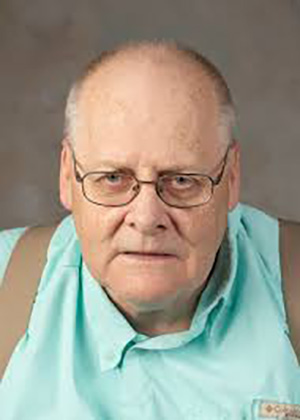By GREG MARKLEY
In The Deathly Hallows, a book in the Harry Potter series, a character explains something many people may not see as all that powerful.
“Words are, in my not-so-humble opinion, our most inexhaustible source of magic,” author JK. Rowling wrote. “They are capable of both inflicting injury, and remedying it.”
In this second of two columns on new and repurposed words, I discuss words of political correctness, Zoom-related words and aging words. Sources are AmericanDialect.org, nominations for words of the year; MerriamWebster.org.,
words of the year); and Pearsonpte.com, 10 new English words for 2021.
The word antebellum, usually only bandied about by Civil War historians and reenactors, got new life last year for two reasons. First, a two-man and one woman Grammy-winning band called Lady Antebellum switched their moniker to “Lady A.”
“We are regretful and embarrassed that we did not take into account the associations that weigh down this word referring to the period of history before the Civil War, which includes slavery,” the band wrote in June 2020.
The second reason “antebellum” had 885% more lookups in 2020 than before was that a movie appeared that September which had the word as its title. Another word that is not new but continues to be used is “malarkey.” It spiked 3,200% more in lookups when Democratic presidential candidate Joe Biden used it in a debate. “He (Republican nominee Donald Trump) is trying to tell us he cares about the middle class. Give me a break. That is a bunch of malarkey.”
During the pandemic, a software company named Zoom Cloud Meetings increased its reach in teleconferencing significantly. It was used for remote work, online social relations and distance education. The company zoomed into being the fifth most downloaded mobile app in the world, at 477 million downloads.
New Zoom-related words are oysgezoomt (fatigued or bored by Zoom); “you’re muted” (refrain on Zoom to remind someone to unmute when speaking) and Zoom fatigue (exhaustion gained by doing too much Zoom). A key word too is Zoom-bombing (disruption on a Zoom session by trolls.) A “troll” is a person who posts off-topic, inflammatory or insincere messages in blogs, etc., to create havoc.
Two words the American Dialect Society lists as Most Likely to succeed in the English lexicon, are antiracism and BIPOC. Antiracism is “actively working to prevent or combat racism.” That’s admirable, of course. Yet you rarely see people protesting for any group other than their own. John Lewis was an exception; he fought for all races in his long civil rights and congressional career.
BIPOC is an acronym for “Black, Indigenous and People of Color.” It seems a little contrived, like POSSLQ, developed in the late 1970s for Person of Opposite Sex Sharing Living Quarters. POSSLQ did not catch on much, except at the United States Census Bureau which instituted it. The Bureau wanted to better gauge the extent of cohabitation in American households.
Two words traced to 2019 seem reasonable. Awe walk is defined as “Taking a walk outside and making an effort to look at the things around you.” It centers on respect for the natural beauty and the people outside. A recent psychological study indicated that taking awe walks makes you more positive and less stressed. Putting away all electronic devices when walking helps too; both for you and passersby.
Another word from the pandemic era is delightful: “quarenteen.” It joins the words quarantine and teen. It is sad in that teenagers should go outside a lot, to be healthier. They are quarantined for their safety. That is a good reason, but they miss their friends and don’t like being cooped up (Neither do their parents.)
Our contemporary social distancing years led to an acronym of impact: WFH. It is an abbreviation for “work (or working) from home.” When personal computers and the Internet made transferring your workplace from an office to your home, most people were pleased. Goodbye for a while to rush-hour traffic, office politics and in-person meetings. Hello to background music at work, and to your office arrangement including a cat or dog being curled up near your feet.
JK Rowling, in connection with her Harry Potter books, launched an online reading hub for students in this crisis. “Harry Potter at Home” offers free access to the audiobook version of the first installment. Readers enjoy words such as the appealing new ones I introduced on Aug. 13 and today.
Greg Markley first moved to Lee County in 1996. He has Masters’ in education and history. He taught politics as an adjunct in Georgia and Alabama. An award-winning writer in the Army and civilian life, he has contributed to the Observer for 11 years. gm.markley@charter.net .


